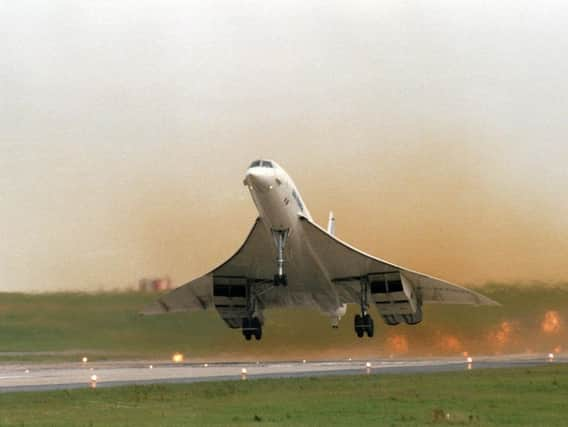Celebrations 50 years on from Concorde's maiden flight


And as events are due be held in Britain to celebrate the 50th anniversary of Concorde’s maiden flight today, it is clear that pilots and fans alike continue to revere the aircraft more than 15 years after its retirement from service.
The first Concorde prototype took off from Toulouse in the south of France on March 2 1969, when test pilot Andre Turcat flew it for just 27 minutes.
Advertisement
Hide AdAdvertisement
Hide AdIt became most famous for its blistering pace – boasting a cruising velocity of twice the speed of sound, or 1,350mph, allowing it to cover a mile in just 2.75 seconds.
British Airways captain John Tye said that he was “glued to the TV” when the maiden flight happened.
The 61-year-old, from Walton on Thames, Surrey, went on to fly the 100-seater aircraft between 1998 and 2000.
He described how it required “absolute precision” and would push through the sound barrier while causing “nothing more than a ripple on 100 glasses of champagne”.
Advertisement
Hide AdAdvertisement
Hide AdMr Tye said Concorde was a “masterpiece of engineering” and “one of the world’s most beautiful creations”.
Jock Lowe, who was the longest serving Concorde pilot, said flying the aircraft was “like driving a sports car compared with a normal car”.
He continued: “The most exhilarating part was the power you had on take-off. The acceleration was really quite special.”
It was also a feature of the region’s Leeds Bradford Airport. Between the inaugural Yorkshire Charter Concorde flight in April 1987 and the decision by British Airways to end its association with the company in 2000, there were 16 flights a year, 100 passengers at a time
Advertisement
Hide AdAdvertisement
Hide AdConcorde quickly established itself as the way to travel for the discerning tycoon and Hollywood star. Its fine wines and five-star cuisine assured it a large, well-heeled fan base, with regular passengers including the likes of Joan Collins, Sir Paul McCartney and Diana, Princess of Wales.
Concorde was grounded in October 2003, with British Airways and Air France blaming a downturn in passenger numbers and rising maintenance costs.